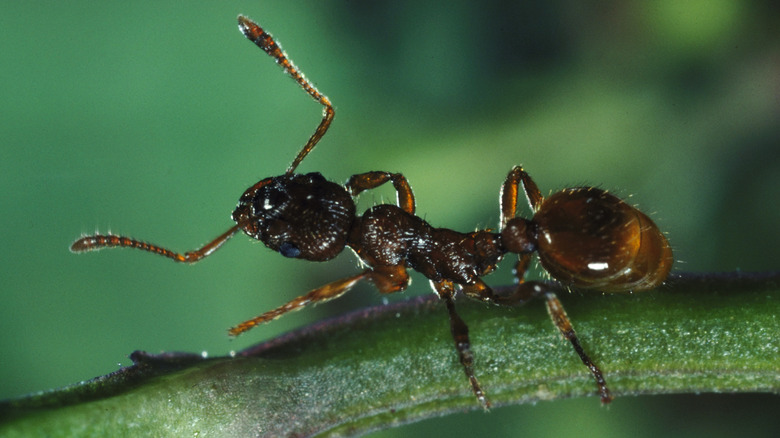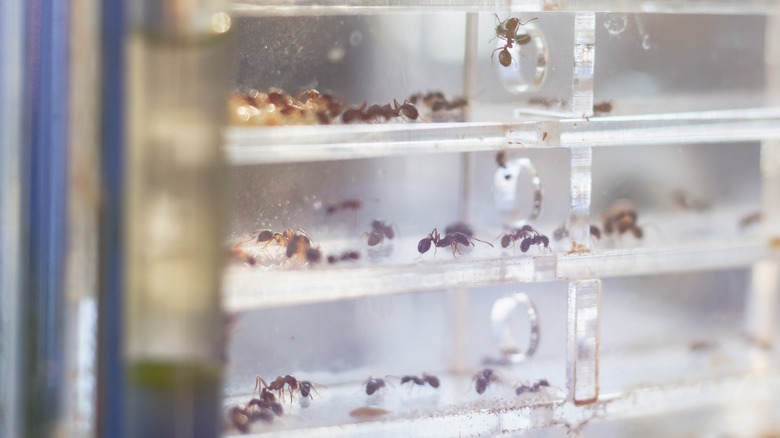New Study Shows How Ants May Help Detect Cancer Early
When it comes to cancer prevention, insects may have the potential to aid in the early detection of the disease. At least according to studies in recent years, such as a 2022 research paper published as a pre-print in bioRxiv that found locusts were effective at differentiating between cancerous and healthy cells in humans by using their sense of smell (via Michigan State University).
As it turns out, however, locusts may not be the only insects possessing this unique ability. A new study published in the Proceedings of the Royal Society B indicates that ants may also be able to pick up on the scent of cancer in humans. Using three colonies of Formica fusca ants from France, researchers put the insects' noses to the test and trained the ants using a sugar solution to respond to the urine of mice exposed to human tumor tissue. As per the study, individual ants underwent three rounds of conditioning, in which they progressively required less time to seek out the reward between rounds.
Ants may be able to pick up on the scent of cancer cells
In the recent study, ants also underwent memory tests with no reward attached to further assess whether or not they could still detect the tumor sample urine apart from the healthy mice urine using odorant tubes or non-scented tubes. The cancer detection was defined as ants spending longer amounts of time in closer proximity to the tumor samples. Researchers found that not only did the ants demonstrate quick learning abilities, but they also showed strong memory capabilities in identifying the "sick" samples.
Although the results of the study hold potential, co-author of the research paper Baptiste Piqueret told The Washington Post, "It's important to know that we are far from using [ants] as a daily way to detect cancer." However, for those who are curious about what the future of ant cancer screenings might possibly look like one day, Piqueret reassured the public that these creepy crawlers will not need to be applied directly to the body. "There will be no direct contact between ants and patients," he told the publication. "So even if people are afraid of insects, it's fine."


